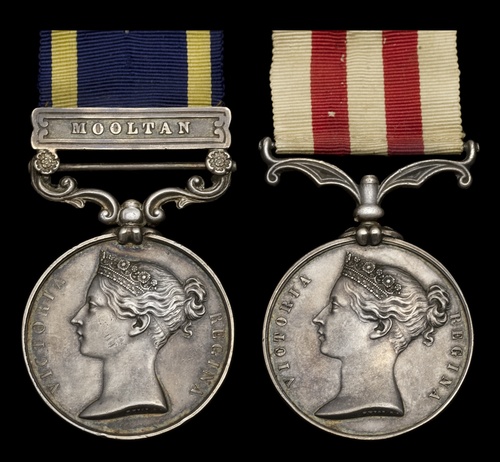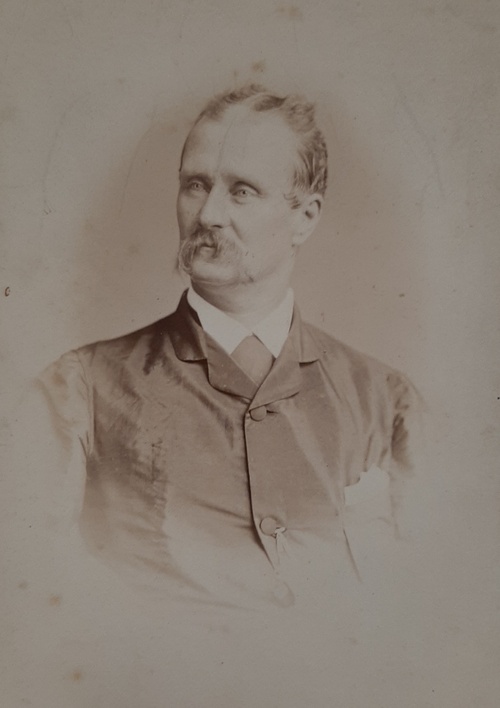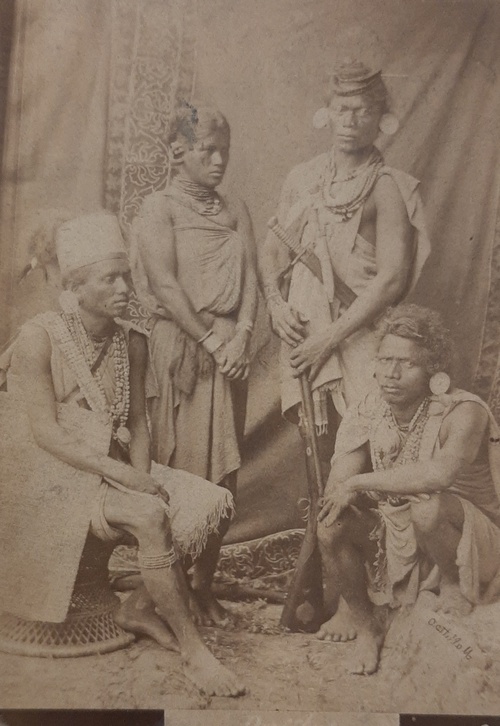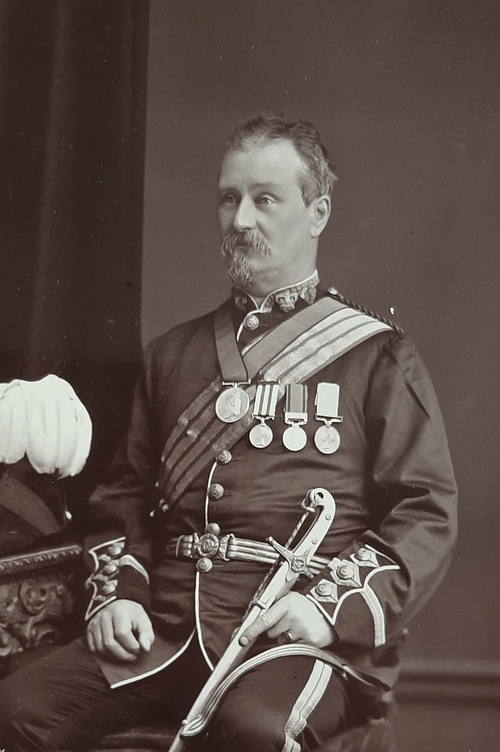Auction: 24003 - Orders, Decorations and Medals
Lot: 88
'As it was, during the match the small Manipuri ponies ran circles around the bigger Indian mounts; the final score is not recorded. When later on Sherer took his team to Imphal, Manipur's capital, to play against local teams, the visitors were unable to win a single match. While in Calcutta, Sherer was given a dinner at the Indigo Club, during which he was presented a silver tankard and salver, as well as the title by which he was known, "Joe Sherer, The Father of English Polo." His portrait, bearing that inscription, hung in the Retreat Club in Silchar.'
The Evolution of Polo by Horace A. Laffaye, refers
The campaign pair awarded to Major-General J. F. Sherer, 49th Native Infantry, who commanded the Sylhet Light Infantry during the Action at Latoo and was latterly known as 'The Father of Polo' having popularised the sport within British culture
Punjab Medal 1848-49, 1 clasp, Mooltan (Ensign J. F. Sherer 49th N.I.); Indian Mutiny 1857-59, no clasp (Lieut J. F. Sherer Sylhet Light Infy Bn), both with contemporarily re-engraved naming, edge bruising to first, overall very fine (2)
Joseph Ford Sherer was born at sea aboard the ship Providence on 12 April 1829, the son of Jane and Major-General Sir Joseph Sherer, K.C.S.I. His grandfather on his mother's side was also a Major-General in the Bengal Army which likely aided his application for a cadetship with the East India Company. Sherer was accepted and commissioned Ensign on 10 December 1847.
India, the Punjab and the Mutiny
Posted to the 49th (Bengal) Native Infantry he saw action at the Siege of Mooltan, being advanced afterwards Lieutenant in 1951. While in India he took to languages quickly and was soon qualified in Hindustani, Assamese and Bengali. His obituary in the St. Leonards and Hastings Observer states:
'He joined at once, and took part with his regiment in the Punjab Campaign of 1848-49, through the Siege and Capture of Mooltan, being attached to the force engaged in the storming of that city, and present at the final surrender of that fortress. He received the Punjab Medal and clasp, and at a full parade of the regiment he was given charge of a Company by his Commanding officer. He was promoted Lieutenant in January 1851. In May, 1849 he had passed the "Lower Standard" colloquial examinations, and in August 1854, he was appointed by the commander in chief to do duty with the Sylhet Light Infantry on the North Eastern Frontier, and in November of the same year he became the Adjutant of the Corps. During the height of the Mutiny he was, in addition to his own duties, employed by the Government in raising a regiment of Manipuris. For this work he received the thanks of the Government of Bengal. In December 1857, he commanded the Sylhet Light Infantry in action at Latoo against the mutineer Companies of the 34th Native Infantry. The rebels were utterly routed, and 33,000 rupees of Government money plundered by them from the Cattiagong [SIC] Treasury were recovered. He was again thanked, and his services brought prominently to the notice of the Commander-in-Chief and the Government of India. This victory was officially recognised to be "in great measure due to the personal bravery of Lieutenant Sherer, on whom the command devolved after the loss of Major the Hon. R. Byng." The Major General commanding the Presidency Division issued an order in which he mentioned the "bold and spirited behaviour" of Lieutenant Sherer.'
The same article goes on to attributed the loyalty of the Sylhet Light Infantry during the Mutiny to Sherer, attested to in another newspaper article. This relates a story in which an order arrived for Sherer's men to be disarmed as their loyalty was suspected. Unable to believe that his men would mutiny he instead decided to put their loyalty to the test by attacking the mutineers, his men remained loyal and Sherer was able to lead them back to British lines in triumph.
His reward for these services was an appointment as Commandant of the Kookee Levy at the Cachar District of Assam. During this positing he was again commended for rescuing a number of women and children who had been kidnapped during a raid by local tribesmen.
The Father of Polo
Sherer first witnessed the game of Polo whilst still Adjutant of the Sylhet Light Infantry and it was he who provided the driving force for the adoption of the game by Europeans. Along with his Commander in Assam, Captain Robert Stewart and a number of tea planters- who had also witnessed the game being played locally- the first polo club was formed at Silchar Kangjai in March 1859 (at Captain Stewart's bungalow).
The Evolution of Polo outlines the spread of the game from there stating:
'Two years later, Captain Eustace Hill, 3rd Native Infantry, saw the game in Cachar, got the details from Sherer, and started the game in Dacca, where his unit, the Lahore Light Horse- a regiment of East Indies, disbanded in 1865- was stationed. In the meantime, some merchants travelling to Cachar from Calcutta (now Kolkata) saw the game and decided to give it a go. In September 1862, Lt. George Stewart (later major general) visited his brother Robert, now Cachar's commissioner, and saw the game as played by British planters and Manipuris. Taking with him some sticks and balls, Lt. Stewart returned to Barrackpore, where he was stationed, and founded a club where practice games had taken place for a few months, when the game was picked up by some residents from Calcutta under the leadership of Mr C. B. Stewart, a well-known local sportsman.'
Later Sherer was to bring a European team to Imphal in Manipur where they performed poorly again. The result of these early games was that Polo spread over the subcontinent as the pastime of a British community, looking for entertainment. With the Companies' rule over India extinguished Sherer was posted to the Bengal Staff Corps with the rank of Captain and appointed Deputy Commissioner of Kamroop on 15 May 1865.
Epilogue
This posting had him placed close to the border with Bhutan during the Duar war and Sherer spent some time travelling behind the lines asserting British control over the local tax collecting apparatus. Advanced Major on 10 December 1867 he continued to serve in Assam and Manipur for the rest of his career, being promoted Lieutenant-Colonel on 10 December 1878 after a spell at the court of Manipur.
Serving for some time as a Political Agent he was promoted Colonel in 1879 and retired with the rank of Major-General at some stage prior to 1881. Sherer settled initially on Jersey where he was listed as Major-General retired upon the 1881 census. Moving to Sussex he was appointed commissioner for taxes there in 1899, Sherer died at Hastings two years later on 29 July 1901.
For his Empress of India Medal, please see Lot 89, for his miniature dress Medals, please see Lot 305A.
Subject to 20% VAT on Buyer’s Premium. For more information please view Terms and Conditions for Buyers.
Sold for
£650
Starting price
£250











